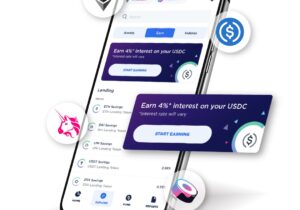
The platform that brought Gen Z together during the pandemic is making a strategic shift, and it’s built on a decade of safety innovation
By Exec Edge Editorial Staff
When Sacha Lazimi, Jérémie Aouate, and Arthur Patora founded Yubo in 2015, their vision was simple: help young people make genuine connections online without the pressure of likes, followers, or popularity metrics. A decade later, that same generation has grown up, and Yubo is growing with them.
Today, the social discovery platform announced it’s officially becoming an 18+ app, reflecting what’s already true for its user base: more than 90% of active users are young adults. In a recent in-app survey, 92% of respondents voted in favor of Yubo becoming a space for young adults exclusively.
“Since our launch 10 years ago, Yubo’s core demographic has grown up from young teens to young adults,” said Lazimi, Yubo CEO. “This move positions us to serve a single audience with clarity and purpose, meeting our users where they are today, not where they started.”
What sets Yubo’s transition apart isn’t just the demographic shift but the infrastructure that makes it possible. In 2022, Yubo became the first major social platform to require age estimation for 100% of users, years before regulatory requirements.
That early investment gives Yubo an edge over other social platforms as age assurance regulations are rapidly coming online across the world’s largest countries, including Australia, where social media apps will soon be legally required to prevent users under 16 years old from holding accounts on their platforms.
To date, Yubo has processed hundreds of millions of age checks, according to a case study jointly published with digital ID provider Yoti, whose facial age estimation technology serves as the front gate for age assurance on Yubo. The tech has been vetted by iBeta as roughly 98% accurate across age groups, genders, skin tones, and other traits. But it’s just one of multiple layers implemented by Yubo to bolster its age gates, which are enforced by tech as well as trained Safety Specialists, whose manual review of ID are called upon when facial age estimation finds inconclusive results or follow-on reviews are triggered by ongoing policy enforcement throughout the user journey on Yubo.
Guarding access to its platform at this level is resource-intensive, between the years-long investment in Yoti’s industry-leading solutions to the “positive friction” that age checks in the user experience. Yubo has consistently stated that the benefits outweigh the costs.
“Safety is a prerequisite to the experience of forging meaningful relationships with new people, so in a sense, a core part of our business strategy is safety innovation,” Liquard said. “Our pre-18+ foundation makes this evolution feasible.”
A Business Strategy Rooted in User Reality
The shift to 18+ isn’t just about safety but about product-market fit, Lazimi said.
For more than a year, users aged 18 and older have comprised the majority – roughly 90 percent, in fact – of Yubo’s global base across key markets: France, the UK, and the U.S.
From an operational standpoint, the consolidation offers clear efficiencies. Instead of dividing and conquering to meet the needs of divergent user groups, Yubo can focus resources on creating the best possible experience for young adults, the company said in a statement.
“We’ve been in business for 10 years, standing strong for the next decade requires a certain level of reinvention,” Lazimi said. “We’re remaining committed to safety and to Gen Z, so evolving within those parameters means development across our product roadmap to ensure that we continue to fit into the real-world social habits and needs of our core user base.”
The transition also positions Yubo more competitively in the social discovery space, a category the platform helped pioneer but that’s become increasingly crowded with apps targeting adult users seeking authentic connections, or solely romantic connections, in a post-pandemic world.
Beyond safety, the core Yubo experience also will remain. Real-time user interactions will remain the central focus of the platform, encouraging active engagement over passive content consumption, which has become the norm across social media platforms. On Yubo, users connect through an intuitive swiping function based on shared interests, message one-on-one or interact in groups.
Coming product updates will enhance this experience with expanded profile customization, more control over group livestream interactions, and optional geolocation settings for those wanting to prioritize local connections.
The Regulatory Landscape
Yubo’s proactive approach to age assurance has positioned the company ahead of an increasingly complex regulatory landscape. While other platforms scramble to comply with new requirements (the UK’s Online Safety Act, the EU’s Digital Services Act, state-level legislation across the US), Yubo has been operating comprehensive verification systems for three years.
“Where others are still debating age verification feasibility, we’ve conducted over 290 million age checks,” Liquard points out. “We don’t just follow the rules; we contribute to policy discussions that shape what’s next.”
This isn’t coincidental. Yubo has actively collaborated with regulators and safety organizations globally, publishing transparency reports and participating in policy development discussions.
“We believe platforms have a responsibility to know who’s using their service to promote safe conditions for users,” Lazimi says. “Effective safety requires age assurance. We’re proving that comprehensive verification is operationally feasible at scale.”
The shift to 18+ began in early 2025 with direct notifications to users under 18 followed by account deactivations proceeded country by country. The process was completed by late October 2025.
Users received advance notice, information about data management options, timely support for questions, and (for paying users) refunds where applicable. Those aged 16-17 were given the option to store their accounts for retrieval on or after their 18th birthdays.
What This Means for Social Media
Yubo’s evolution reflects broader shifts in how platforms think about age-appropriate design, safety infrastructure, and authentic connection in the digital age.
“We want to flip the attitude of socializing with new people from ‘what’s the worst that could happen?’ to ‘what’s the best that could happen?'” Lazimi said. “Our young-adult user base wants connections, and they want it on their terms, whether that’s professional networking, local meetups, or the organic relationships that develop, which we feel happens most easily when serendipity meets safety.”
For a generation that came of age during a pandemic, that promise of genuine connection, without the performance pressure of traditional social media, has proven powerful. Yubo saw a 550% increase in livestream engagement during 2020, as Gen Z sought out authentic peer interaction during isolation.
Now, as that same generation navigates early adulthood, Yubo is positioning itself as the platform that grows with them, maintaining the safety infrastructure that sets it apart while evolving to meet the needs of young adults building lives, careers, and relationships in an increasingly digital world.
“We’re excited to keep growing alongside this loyal user base,” Lazimi says. “And we look forward to the next 10 years together.”
READ MORE
NYSE Firesides Scheduled Dec 9, 2025 & Feb 3, 2026
Register for our weekly newsletter HERE
Contact:
Editor@IPO-Edge.com
Click HERE to follow us on LinkedIn







